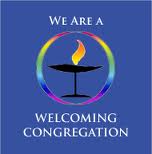Presenters
Index Page
Barker, Geraldine
Bodner, Mark
Burton, Laura
Castleberry, Kasey
Davis, Sam
Davis, Terry UU minister
Frost, Edward UU minister
Kibler, Myra
Nicholson & Brown
Sally Pamplin
Robison, Gerald
Seidman, Karl
Sheber, Larry
Sherod, Bob
Simmons, Antoine
Tremblay, Alexandra Immunologist
Waddell, Donna
Walker, James
West, Herb & Myrna
Woehr, Terry
Wood, Bruce
Other Sources
American Ideals: Founding Documents and the UU Principles
by Karl Seidman
This sermon was originally given on 2016 November 20 to the congregation of Mountain Light Unitarian Universalist Church in Ellijay GA.
There are many parallels between American ideals, the documents that reflect them, and the UU Principles which I will talk about today.
I draw on sermons I found on the internet to expand on each of the principles where I think it is appropriate.
UU1: The inherent worth and dignity of every person.
Reverence and respect for human nature is at the core of Unitarian Universalist (UU) faith. We believe that all the dimensions of our being carry the potential to do good. We celebrate the gifts of being human: our intelligence and capacity for observation and reason, our senses and ability to appreciate beauty, our creativity, our feelings and emotions. We cherish our bodies as well as our souls. We can use our gifts to offer love, to work for justice, to heal injury, to create pleasure for ourselves and others.
"'Just to be is a blessing. Just to live is holy,' the great twentieth-century Rabbi Abraham Heschel wrote. Unitarian Universalists affirm the inherent worth and dignity of each person as a given of faith—an unshakeable conviction calling us to self-respect and respect for others."
—Rev. Dr. Rebecca Ann Parker, minister, theologian, and author.
Inherent worth would imply that we are equal—that one life isn't more important than another.
What is dignity anyway—being worthy of honor and respect. So if we are equal then we must treat each other with honor and respect.
Declaration of Independence:
We hold these truths to be self-evident: that all men are created equal: that they are endowed by their creator with certain unalienable rights; that among these are life, liberty and the pursuit of happiness.
While the stated purpose of the Declaration of Independence was to justify independence from Great Britain—in other words:
When in the Course of human events, it becomes necessary for one people to dissolve the political bands which have connected them with another, and to assume among the powers of the earth, the separate and equal station to which the Laws of Nature and of Nature's God entitle them, a decent respect to the opinions of mankind requires that they should declare the causes which impel them to the separation.
The declaration then reasons from the self-evident truths about mankind:
We hold these truths to be self-evident, that all men are created equal, that they are endowed by their Creator with certain unalienable Rights, that among these are Life, Liberty and the pursuit of Happiness.--That to secure these rights, Governments are instituted among Men, deriving their just powers from the consent of the governed, --That whenever any Form of Government becomes destructive of these ends, it is the Right of the People to alter or to abolish it, and to institute new Government, laying its foundation on such principles and organizing its powers in such form, as to them shall seem most likely to affect their Safety and Happiness.
So we see that when government becomes destructive of the rights to life, liberty and the pursuit of happiness then it can be altered or abolished.
How revolutionary is the Declaration of Independence—it totally repudiates the Divine Right of Kings.
The Divine Right of Kings can be dated back to the medieval period, where it highlighted the superiority and legitimacy of a monarch. At its core, the concept of the Divine Right has religious and political origins, therefore furthering its legitimacy. As a whole, this concept states that only God can judge a monarch, because only he has the authority. It believes that a form of monarchical government is the most appropriate, and allegiance should only be sworn to the legitimate heir to the crown.
The driving force behind the success of the Divine Right of Kings was the idea of punishment to enforce obedience. In reality this established fear among a sovereign's subjects, and in some ways made the monarchs of this period rather tyrannical. To assert the obedience of their subjects they would hold public executions, which most certainly generated fear. Monarchs also used tools such as propaganda to ensure the loyalty of their subjects. The idea of sedition taught subjects that divine retribution would occur if they acted out against their ruler.The Divine Right of Kings also explained the idea of social rank. Although it is now considered to be absurd, this divine theory instituted a political hierarchy that prospered during its time period. Some reformers in the sixteenth century considered that some resistance was good, and initiated much needed change.
Lincoln's Gettysburg Address, 87 years later:
FOUR SCORE AND SEVEN YEARS AGO OUR FATHERS BROUGHT FORTH ON THIS CONTINENT A NEW NATION CONCEIVED IN LIBERTY AND DEDICATED TO THE PROPOSITION THAT ALL MEN ARE CREATED EQUAL •NOW WE ARE ENGAGED IN A GREAT CIVIL WAR TESTING WHETHER THAT NATION OR ANY NATION SO CONCEIVED AND SO DEDICATED CAN LONG ENDURE • WE ARE MET ON A GREAT BATTLEFIELD OF THAT WAR • WE HAVE COME TO DEDICATE A PORTION OF THAT FIELD AS A FINAL RESTING PLACE FOR THOSE WHO HERE GAVE THEIR LIVES THAT THAT NATION MIGHT LIVE • IT IS ALTOGETHER FITTING AND PROPER THAT WE SHOULD DO THIS • BUT IN A LARGER SENSE WE CAN NOT DEDICATE~WE CAN NOT CONSECRATE~WE CAN NOT HALLOW~THIS GROUND • THE BRAVE MEN LIVING AND DEAD WHO STRUGGLED HERE HAVE CONSECRATED IT FAR ABOVE OUR POOR POWER TO ADD OR DETRACT • THE WORLD WILL LITTLE NOTE NOR LONG REMEMBER WHAT WE SAY HERE BUT IT CAN NEVER FORGET WHAT THEY DID HERE • IT IS FOR US THE LIVING RATHER TO BE DEDICATED HERE TO THE UNFINISHED WORK WHICH THEY WHO FOUGHT HERE HAVE THUS FAR SO NOBLY ADVANCED • IT IS RATHER FOR US TO BE HERE DEDICATED TO THE GREAT TASK REMAINING BEFORE US~THAT FROM THESE HONORED DEAD WE TAKE INCREASED DEVOTION TO THAT CAUSE FOR WHICH THEY GAVE THE LAST FULL MEASURE OF DEVOTION~THAT WE HERE HIGHLY RESOLVE THAT THESE DEAD SHALL NOT HAVE DIED IN VAIN~THAT THIS NATION UNDER GOD SHALL HAVE A NEW BIRTH OF FREEDOM~AND THAT GOVERNMENT OF THE PEOPLE BY THE PEOPLE FOR THE PEOPLE SHALL NOT PERISH FROM THE EARTH •
UU2: Justice, Equity and Compassion in Human Relations
"Justice, equity, and compassion in human relations points us toward something beyond inherent worth and dignity. It points us to the larger community. It gets at collective responsibility. It reminds us that treating people as human beings is not simply something we do one-on-one, but something that has systemic implications and can inform our entire cultural way of being.
"Compassion is something that we can easily act on individually. We can demonstrate openness, give people respect, and treat people with kindness on our own. But we need one another to achieve equity and justice.
"Justice, equity, and compassion are all part of the same package. Just as the second Principle overlaps with the first, so it is related to the seventh Principle—the interdependent web of all existence."
—Rev. Emily Gage, Unity Temple, Chicago, IL (read more from Emily in The Seven Principles in Word and Worship, ed. Ellen Brandenburg)
The Constitution of the United States of America
We the People of the United States, in order to form a more perfect Union, establish Justice, insure domestic tranquility, provide for the common defence, promote the general Welfare, and secure the blessings of Liberty to ourselves and our posterity, do ordain and establish this Constitution for the United States of America.
Obviously the word justice is in there, and by implication---
I think that in order to have domestic tranquility, to promote the general welfare and secure the blessings of liberty, that we need equity and compassion in human relations.
UU3: Acceptance of one another and encouragement to spiritual growth in our congregations
"Spiritual growth isn't about a vertical ascent to heaven but about growth in every dimension at once. It's spirituality in 3-D. Growth in spirit doesn't measure one's proximity to a God above, but rather the spaciousness of one's own soul—its volume, its capacity, its size."We need souls that can take in the world in all its complexity and diversity, yet still maintain our integrity. And we need souls that can love and be in relationship with all of this complexity. Instead of fight or flight, we need a spiritual posture of embrace."
—Rev. Rob Hardies, All Souls Church Unitarian, Washington, DC (read more from Rob in The Seven Principles in Word and Worship, ed. Ellen Brandenburg.
UU4: A free and responsible search for truth and meaning
4th Principle: We believe that each person must be free to search for what is true and right in life.
"As responsible religious seekers, we recognize that we are privileged to be free, to have resources to pursue life beyond mere survival, to continually search for truth and meaning, to exist beyond bonds of dogma and oppression, and to wrestle freely with truth and meaning as they evolve.
"This privilege calls us not to be isolated and self-centered, believing that our single perspective trumps all others, but rather to be humble, to be open to the great mysteries of truth and meaning that life offers. And those mysteries may speak to us through our own intuition and experience—but also through tradition, community, conflict, nature, and relationships.
"As a faith tradition, Unitarian Universalism makes sacred the right and responsibility to engage in this free and responsible quest as an act of religious devotion. Institutionally, we have left open the questions of what truth and meaning are, acknowledging that mindful people will, in every age, discover new insights."
—Rev. Paige Getty, UU Congregation of Columbia, Maryland (read more from Paige in The Seven Principles in Word and Worship, ed. Ellen Brandenburg
The Bill of Rights (first 10 amendments to the Constitution) supports, enables and underpins Principles 3 and 4.
The first Amendment: Congress shall make no law respecting the establishment of religion, or prohibiting the free exercise thereof; of abridging the freedom of speech, or of the press; or the right of the people to peaceably to assemble, and to petition the government for a redress of grievances.
Another take on the Founding Fathers:
Washington Letter to the Jews of Newport August 18, 1790
Gentlemen:
While I received with much satisfaction your address replete with expressions of esteem, I rejoice in the opportunity of assuring you that I shall always retain grateful remembrance of the cordial welcome I experienced on my visit to Newport from all classes of citizens.
The reflection on the days of difficulty and danger which are past is rendered the more sweet from a consciousness that they are succeeded by days of uncommon prosperity and security.
If we have wisdom to make the best use of the advantages with which we are now favored, we cannot fail, under the just administration of a good government, to become a great and happy people.
The citizens of the United States of America have a right to applaud themselves for having given to mankind examples of an enlarged and liberal policy—a policy worthy of imitation. All possess alike liberty of conscience and immunities of citizenship.
It is now no more that toleration is spoken of as if it were the indulgence of one class of people that another enjoyed the exercise of their inherent natural rights, for, happily, the Government of the United States, which gives to bigotry no sanction, to persecution no assistance, requires only that they who live under its protection should demean themselves as good citizens in giving it on all occasions their effectual support.
It would be inconsistent with the frankness of my character not to avow that I am pleased with your favorable opinion of my administration and fervent wishes for my felicity.
May the children of the stock of Abraham who dwell in this land continue to merit and enjoy the good will of the other inhabitants—while every one shall sit in safety under his own vine and fig tree and there shall be none to make him afraid.
May the father of all mercies scatter light, and not darkness, upon our paths, and make us all in our several vocations useful here, and in His own due time and way everlastingly happy.
G. Washington
UU 5: The right of conscience and the use of the democratic process within our congregations and in society at large
Constitution Section 2: House of Representatives
Clause 1: Composition and election of Members
The House of Representatives shall be composed of Members chosen every second Year by the People of the several States, and the Electors in each State shall have the Qualifications requisite for Electors of the most numerous Branch of the State Legislature.
At the time of its creation, the Constitution did not explicitly give citizens an inherent right to vote. Rather, it provided that those qualified to vote in elections for the largest chamber of a state's legislature may vote in Congressional (House of Representatives) elections. Since the Civil War, several constitutional amendments have been enacted that have curbed the states' broad powers to set voter qualification standards.
UU6: The goal of world community with peace, liberty, and justice for all.
Notice how that principle echoes part of the Pledge of Allegiance:
I pledge allegiance to the flag of the United States of America and to the republic for which it stands—one nation, under God, indivisible with liberty and justice for all.
The Pledge of Allegiance as it exists in is current form, was originally composed in August 1892 by Francis Bellamy, (1855-1931) who was a Baptist minister, a Christian socialist and the cousin of utopian ovelist Edwary Bellamy.
Bellamy's original pledge read:
I pledge allegiance to my flag and the republic for which it stands, one nation, indivisible, with liberty and justice for all.
In 1923 the National Flag Conference called for the words "my Flag" to be changed to "the flag of the United States" so that new immigrants would not confuse loyalties between their birth countries and the United States. The words "of America" were added a year later.
The US Congress officially recognized the Pledge for the first time on June 22, 1942.
The phrase "under God" was not incorporated into the Pledge until June 14, 1954, by a Joint Resolution of Congress. You might be interested to know that many objections have been raised since the addition of the phrase in 1954.
UU7: Respect for the interdependent web of all existence of which we are a part.
In the late 1950s and into the 1960s Congress reacted to increasing public concern about the impact that human activity could have on the environment. A key legislative option to address this concern was the declaration of a national environmental policy. The statute that ultimately addressed this issue was the National Environmental Policy Act of 1969. The law was signed by President Nixon on January 1, 1970. NEPA was the first of several major environmental laws passed in the 1970s. It declared a national policy to protect the environment and created a Council on Environmental Quality (CEQ) in the Executive Office of the President. To implement the national policy, NEPA required that a detailed statement of environmental impacts be prepared for all major federal actions significantly affecting the environment. The "detailed statement" would ultimately be referred to as an environmental impact statement (EIS).
In 1970, President Richard Nixon proposed an executive reorganization that would consolidate many of the federal government's environmental responsibilities under one agency, a new Environmental Protection Agency. That reorganization proposal was reviewed and passed by the House and Senate.






